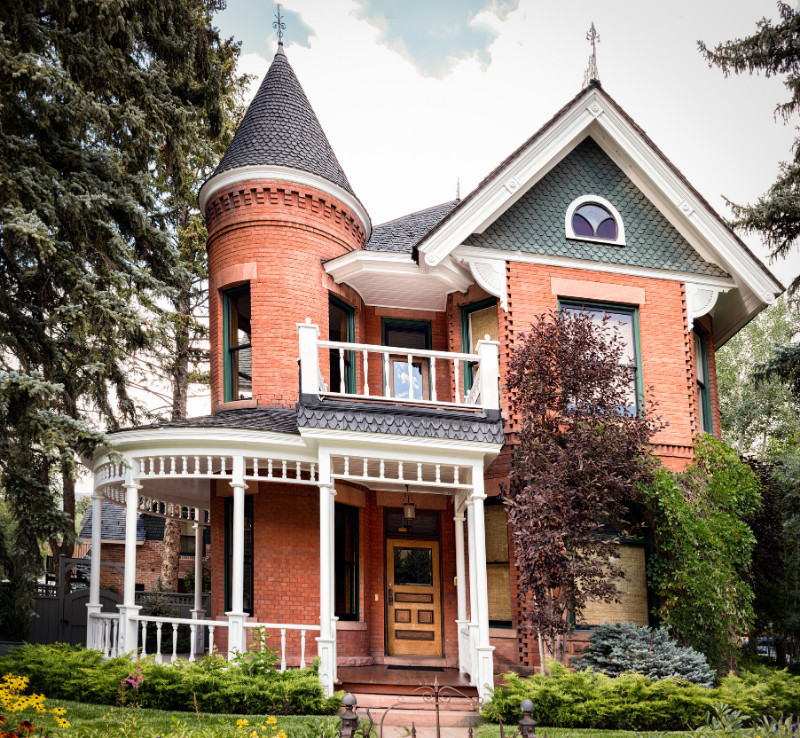
If you own a heritage home in Ontario and are thinking of putting it on the market, then you’ve come to the right place. We at the Krishan Nathan Group are one of Kingston, Ontario’s leading Realtors, with the skill and experience in selling heritage properties. We’ll market your home to the right buyer and make sure you get the most out of your investment.
Indeed, Ontario is rich in heritage homes that say a lot about the region’s history and culture. Heritage homes (a.k.a. historic homes) are unique real estate properties that come with special requirements when it comes to their purchase, sale, upkeep and/or renovation. Therefore, it’s important to tap the kind of buyer who knows what owning a heritage home entails.
WHAT IS A HERITAGE OR HISTORIC HOME?
To make sure the home you own is a heritage property, it must be designated by the government as having “special heritage interest.” This means that the property has been deemed as adding history, charm, aesthetic, or cultural value to a community. Several factors determine if a property can be given heritage status, including:
- Age of the home
- Historical significance
- Architectural design and builder
- Method of construction
- Cultural value
- Previous owners
The Ontario Heritage Act defines how a property can be identified and designated as a heritage property, while also detailing how they should be protected and conserved. The Act also empowers municipal governments to designate heritage properties and districts.
When a property has been classified as a heritage home, any change or renovation must first be approved by a committee to ensure the property’s intrinsic value is not affected. Certain heritage properties are also protected from demolition.
Valuation of a heritage home
There is a widespread notion that a heritage designation can negatively impact the value of a property, but research shows this is not the case. In fact, the opposite is often true. According to the International Journal of Heritage Studies, the rate of sale among heritage homes is ”as good or better than the ambient market trends,” adding that heritage homes “tend to be resistant to downturns in the general market.”
One report that surveyed 24 Ontario communities discovered the following facts about heritage homes:
- 74% of heritage homes performed average or better than average in the market
- 59% of heritage homes performed better than the average property
- 15% of heritage homes performed just as well as regular homes in a given area
- The highest selling historic homes sold 88% to 92% better than the average property
These and other studies strongly suggest that a heritage designation can boost a property’s value, especially when compared to that of average properties.
6 THINGS OWNERS NEED TO KNOW BEFORE SELLING THEIR HERITAGE HOME

If you’re planning to sell your heritage home, there are steps you can take to make your property more enticing for buyers.
- Determine your property’s heritage designation
When selling historic homes, you need to make it clear to buyers that they are purchasing heritage property. There are three ways that a property might be considered a heritage home, as defined by the Ontario Heritage Act.
- It is listed in the heritage register maintained by the municipality. Properties listed in the municipality heritage register cannot be demolished without notifying the municipal government at least 60 days in advance.
- A historic home cannot be altered without authorization from the municipal government.
- It is part of a heritage conservation district. Homes belonging to a heritage conservation district provides buyers with a list of the changes they can make that don’t require a permit.
Therefore, make sure you know what kind of heritage property you own, and:
- Let your buyer know about the kind of heritage property you have to avoid misunderstandings during the home selling process.
- Disclose any heritage restrictions your property may have because it may influence the buyer’s decision.
Failure to acknowledge your property’s heritage status and restrictions can result in severe legal consequences.
- You can apply for an easement on the property
It can be difficult to let go of a heritage property, especially if you’re emotionally attached to it. Fortunately, there’s a way to protect all the hard work you’ve put into it. A historic preservation easement is a voluntary legal agreement that protects a heritage property by giving the easement holder a legal property interest. As an easement holder, you’ll have the authority to review and approve the changes that a new owner plans to conduct on the property.
Easements for heritage properties are usually stated in the deed and come with the protection of an organization with a recognized interest in historic preservation. The aspects of the property that will be subject to the easement will depend on the person who applies for the easement. You can access more information about easements from the Ontario Heritage Trust website.
It’s worth noting that having an easement on your heritage home can make it more difficult to sell. The good news for buyers is that easement requirements often cover maintenance and improvement costs, so make sure you let potential buyers know of this particular benefit.
- Provide a record of the home’s upkeep and maintenance

If you’re the type of heritage homeowner who diligently maintains your property, then your home’s wiring, plumbing, HVAC systems, and the like are up to code.
If so, provide a list of the maintenance and upkeep you’ve done to the property. Buyers will appreciate the fact that your heritage home conforms to modern safety and living standards, which can help you fetch top dollar for it.
- Create a tailored marketing strategy
Most homebuyers aren’t looking to buy a heritage home and those who do may be overwhelmed by the considerable responsibility and limitations of ownership. Thus, you need to find a buyer who will be invested in preserving your heritage home to the level you did, if not more so. Think of it as a niche market where you need to know everything about your target audience.
Work with a real estate agent who understands the niche buyers of heritage homes. They will know how to showcase the biggest selling points of your heritage home. If you can locate an agent with an extensive background in selling historic homes, you’ll have no trouble finding the ideal buyers for your unique property.
- Have your home inspected before listing it
It’s not unusual for a heritage homebuyer to come up with a laundry list of repair requests before closing on the home. You can prepare yourself for such a situation by having your home professionally inspected before listing it on the market. Doing so allows you to discover issues before the buyer does and formulate a plan of action that will eliminate lengthy and stressful negotiations later.
Depending on the issues that appear in the inspection report, you can choose to address them yourself, or disclose them to buyers while adjusting your price accordingly if you want them to shoulder the responsibility for the repairs.
- Realistic pricing attracts competing offers
The price you put on your property is an important factor when selling your home. The property market is currently experiencing a downturn, which means buyers will pass over a property if they think it’s overpriced. A well-priced heritage home will attract competing offers and possibly boost the final sale price.
To get the price right for your heritage property, you need to conduct a comparative analysis and see how much similar properties in your area have sold for. If there are no similar properties in your area, your real estate agent will find ways to set the best possible price that buyers will still find enticing.
WORK WITH AN EXPERIENCED HERITAGE HOME AGENT
As you can see, selling historic homes comes with unique demands. Therefore, not all real estate agents will have the knowledge and experience to represent such properties. It’s important to work with a professional with a solid reputation for dealing in heritage properties. These specialists will provide you with expert assistance and advice during negotiations and processes. They will also know how to work within set restrictions to ensure you get the most out of your investment.
Heritage properties by the Krishan Nathan Group
https://ngroup.ca/homes-for-sale-details/428-PRINCESS-STREET-KINGSTON-ON-K7L-1C2/40417566/273/
The Krishan Nathan Group provides quality real estate services for those looking to sell their heritage properties in CFB Kingston and the surrounding areas. We understand the complexities of selling heritage real estate, and we are here to help you plan and strategize to ensure you get the most from your investment.
If you have any questions about selling a historic home or a heritage listed property in Ontario, Canada, call 613.507.3711 or contact us here.


